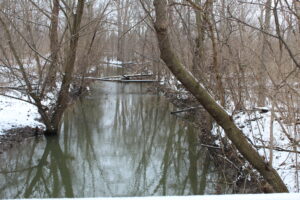From the environments around us to our own body, systems are everywhere. However, in our modern world many of these environmental systems are experiencing great change.

With MCCC’s new Ecology course, students will soon be able to explore those systems and their changes.
Approved by Kevin Cooper, dean of the Science/Mathematics Division, for the Fall Semester 2020, Ecology is a sophomore-level class that has been developed and will be taught by Tracy Rayl, assistant professor of Biology.
“Ecology is all about systems and how the terrestrial environment connects to the aquatic environment, and how those organisms interact with each other,” she said.
The course will feature outdoor labs where students will get to investigate some of the on-campus environments such as Plum Creek, Rayl said.
An overarching theme of the ecology course will be how current climate change is affecting the environment.
“All of our aquatic and terrestrial ecosystems are affected by climate change today, so because of that, I have climate change woven through the entire class,” Rayl said.
Another reason the course is relevant is MCCC’s proximity to Lake Erie, which suffers from flooding and algae issues, Cooper said.
An additional connection is the Flint water crisis, the focus of this year’s Monroe County One Book, One Community program, Cooper said.
“There’s so much in the news nowadays with environmental issues,” he said.
Patrick Wise, associate professor of Psychology, said he recommends his students take the Ecology course.
“Psychology has become an interdisciplinary science over time,” he said. “It is important to understand phenomena in disciplines other than Psychology.”
Ecology and Psychology also share many holistic properties. In both studies, systems interact with each other and cause each other to change.
Wise referenced a psychological theory called the Ecological Systems Theory, developed by Urie Bronfenbrenner, which describes the domino effect that systems can have on one another.
“Just as in Ecology going from one biome to the next is not a draw-line type of thing,” he said. “Our boundaries as people are oftentimes blurred.”
Wise said this theory helps make Ecology become directly applicable to social sciences due to overlapping themes.
Cooper said he approved the class because of the potential to transfer the credits to four-year colleges and its relevance to many different students and today’s society.
“I think there’s a lot of topics students can relate to in this course,” he said.
Although it cannot be determined until the class begins, Rayl said Ecology may transfer to many four-year universities seamlessly because it is an important step to getting a Biology major.
However, Cooper said this agreement is always up to the receiving institution.
“We are looking down the road at hopefully getting more articulation agreements with colleges,” Cooper said.
To enroll in the class, students must have completed either BIO-151 or BIO-156.
The class will cost the same as normal contact hours, although a lab equipment fee will be required.

